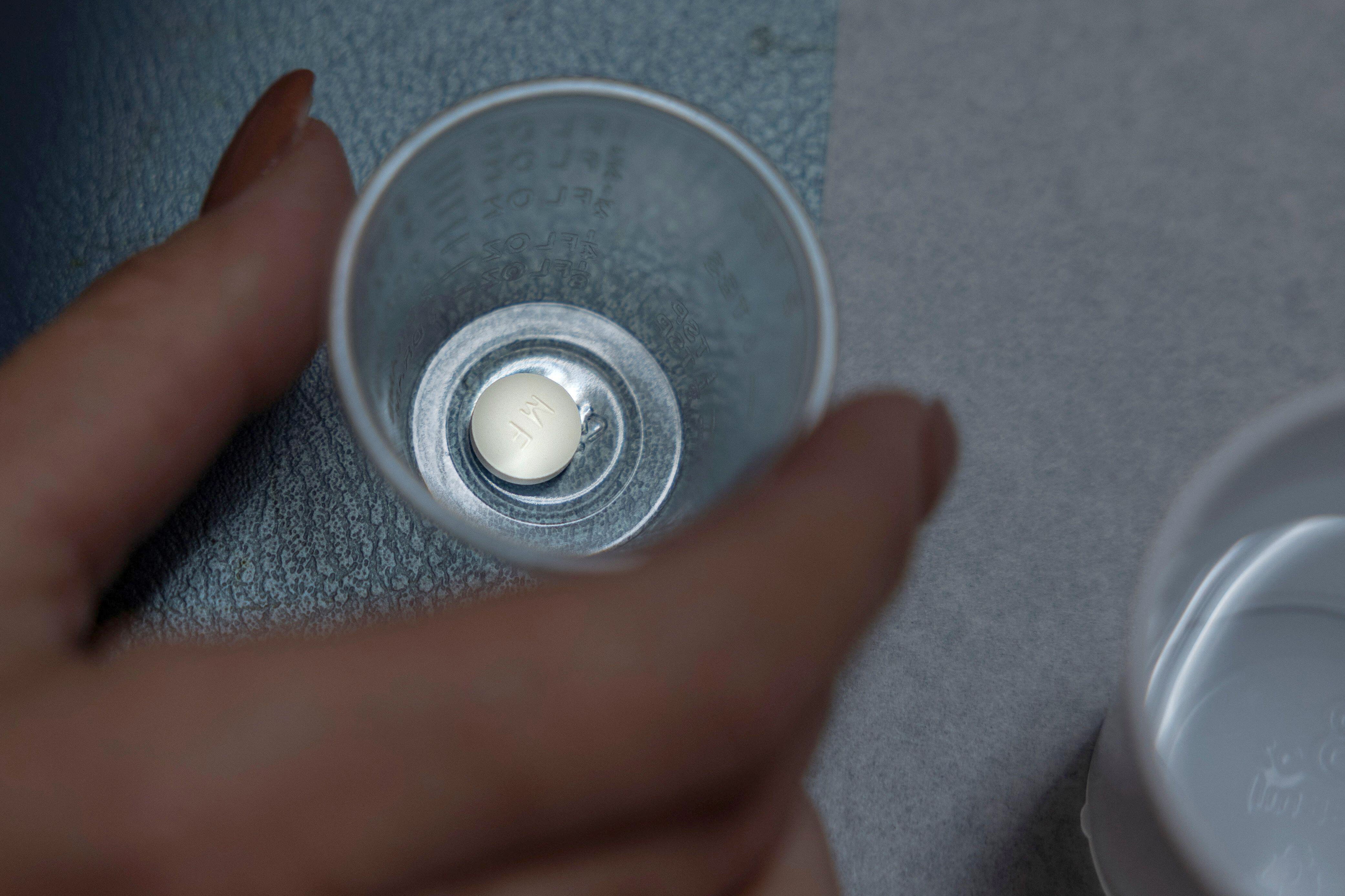
The future of medication abortion, which accounts for more than half of abortions in the U.S., is in limbo after a federal judge ordered the Food and Drug Administration to withdraw its approval of the drug mifepristone, also known as RU-486, which is used in medication abortions. If the ruling is upheld, such abortions will still be possible using another drug regimen. But they could be harder to obtain, even in states where abortion remains legal after last June’s Supreme Court decision overturned the federal right to abortion.
On Friday U.S. district judge Matthew Kacsmaryk of Amarillo, Tex., determined that the FDA did not follow proper procedure when it approved mifepristone in 2000. The Department of Justice and mifepristone’s manufacturer Danco Laboratories appealed the decision to the U.S. Fifth Circuit Court of Appeals, which has until April 13 to stay the Texas ruling and leave mifepristone’s approval in place. If the court does not issue a stay by that date, the DOJ has said it will appeal the case to the Supreme Court.
Also on Friday U.S. district judge Thomas Rice of Spokane, Wash., ruled in favor of attorneys general in 17 states and Washington, D.C., who said that the FDA should “preserve the status quo” and keep mifepristone on the market. I. Glenn Cohen, a bioethics and law expert at Harvard University, says he expects the Supreme Court will issue an emergency stay, pending appeal. Given the national implications of the case and the competing rulings, he expects the Court will expedite it and make a decision within months.
What does the ruling challenging mifepristone’s approval address?
Kacsmaryk’s ruling came in response to a lawsuit by the Alliance for Hippocratic Medicine, a group of antiabortion organizations and doctors who claimed that the FDA ignored reports that patients had been harmed by mifepristone and that it did not follow proper procedures in approving the drug more than 20 years ago.
One complaint says that sending mifepristone in the mail following a virtual visit with a doctor violates the Comstock Act, an 1873 law that prohibits sending “obscene” materials by post. An April 11 study by the Society of Family Planning, an abortion and contraception science nonprofit, found that the number of abortions provided via telemedicine rose by 137 percent between April and December 2022, reflecting the increased difficulty of obtaining in-person abortions in many states. If mifepristone’s approval is withdrawn entirely, mailing it becomes a moot point, says Alina Salganicoff, director of women’s health policy at the nonprofit Kaiser Family Foundation.
A second complaint addresses an FDA approval system that originally limited mifepristone prescription to hospitals, among other restrictions. The lawsuit claims that the FDA improperly fast-tracked the drug by using this approval mechanism. But these restrictions were superseded by a new FDA regulatory system in 2011 and updated in 2016 to allow prescriptions by telemedicine.
The third complaint could have the biggest impact on drug policy. The plaintiffs say that the FDA’s approval and its delayed response to complaints brought by antiabortion advocates in 2002 were “arbitrary and capricious” and that evidence of mifepristone’s safety and efficacy were insufficient. The FDA issued an interim response in 2003 and a final response in 2016, ultimately denying the complaints based on extensive evidence of the drug’s safety. The lawsuit claims this response was too late and violated the agency’s own regulations.
The idea that a district court could overturn an FDA decision has drugmakers and medical experts worried. “This opens the door to go after vaccines, gender-affirming care, any drug viewed as controversial,” Salganicoff says. The FDA has a process to revoke a drug’s approval and has done so more than 200 times since February 2018. But Salganicoff says that decision has always been based on an accumulation of evidence and reports of harm—not the decision of one judge.
On Monday more than 400 pharmaceutical executives released a letter that said Kacsmaryk’s decision “has set a precedent for diminishing FDA’s authority over drug approvals, and in so doing, creates uncertainty for the entire biopharma industry.” They added that “if courts can overturn drug approvals without regard for science or evidence…, any medicine is at risk for the same outcome as mifepristone.”
“The concern is really quite well founded,” says Patricia Zettler, a health law expert at the Ohio State University. States have tried to ban drugs in the past: in 2014 Massachusetts tried to ban the sale of an addictive painkiller called Zohydro.* That decision was overruled by a federal judge on the grounds that the FDA’s federal authority takes precedence over state law. But Zettler says no federal judge has ever tried to overturn the FDA approval itself. “This is a really unprecedented event.”
Is mifepristone safe?
Kacsmaryk’s ruling cites a 2021 study that analyzed 98 anonymous blog posts submitted to a website called AbortionChangesYou.com, of which only 54 were included in the analysis. The study found that 14 percent of women in the study said that they had been given inadequate information on the physical and emotional side effects of medication abortion, but it did not directly measure these effects. Notably, 94 percent of the women said that abortion was the only or best option in their circumstances.
More than 100 long-term studies have found that mifepristone is as safe as surgical abortion and that the side effects are far less severe than many other FDA-approved drugs. It is also very effective: fewer than 5 percent of people who take mifepristone along with the drug misoprostol—the typical regimen for medication abortion in the U.S.—have to undergo surgery to complete the abortion. The FDA reviewed this evidence when it rejected the citizen petition against mifepristone in 2016.
“We have over 20 years of data showing that the use of mifepristone is incredibly safe for medical abortion in the United States,” says Kari White, director of the Texas Policy Evaluation Project at the University of Texas at Austin. The lawsuit, she says, “seems to be a means by which those who are opposed to abortion are trying to limit people’s ability to obtain abortion care even in states where abortion remains legal.”
What options exist if mifepristone’s approval is withdrawn?
Many providers are planning to pivot to misoprostol alone. Medication abortion in the U.S. currently consists of two components: mifepristone, which ends the pregnancy, and misoprostol, which expels the embryo or fetus from the uterus. Misoprostol by itself can induce abortion, and it is used that way in many countries around the world. But the drug is slightly less effective without mifepristone. People who use misoprostol on its own sometimes need to have surgery to complete the abortion, and it is more likely to cause moderate side effects such as nausea and heavy bleeding. White says that although misoprostol is a viable option, “removing a safe medication [like mifepristone] from the market is not aligned with the way medicine is practiced in the U.S.”
Nevertheless, many clinics are preparing to switch medication regimens if mifepristone’s approval is withdrawn temporarily or permanently. On April 10 California governor Gavin Newsome said the state will stockpile two million misoprostol doses in anticipation of such a ruling.
The Texas decision doesn’t address misoprostol, likely because it is also used to treat miscarriages, ulcers and other conditions. (Mifepristone is also sometimes used to treat miscarriages.) It would be difficult to ban misoprostol’s use in abortion, Cohen says, because physicians can prescribe it “off-label.” And a law preventing the drug from being mailed would be hard to enforce because postal services wouldn’t know what it was prescribed for.
How might the Supreme Court rule?
Cohen says the nation’s highest court has options, including upholding all three complaints, a combination of them or none. The easiest path, he says, would be to dismiss the case by saying that the plaintiffs don’t have “standing,” meaning that they were not personally harmed by mifepristone’s approval. Some legal scholars and the DOJ have said that the claim of standing is weak: In the Alliance for Hippocratic Medicine’s lawsuit, the plaintiffs said that they represented patients who were potentially harmed and that ending a pregnancy harmed the livelihoods of the doctors and medical associations in the group because caring for patients who suffer side effects from the medication abortion could draw them away from other patients. And the plaintiffs contended that the FDA’s approval had forced the groups in the alliance to expend more time and money “educating” their members “about the dangers of chemical abortion drugs.” But the DOJ says that because the plaintiff doctors and associations do not even prescribe mifepristone, granting them standing allows any physician to challenge a drug’s approval for any reason.
*Editor’s Note (4/12/23): This sentence was edited after posting to correct the description of the attempt to ban the sale of Zohydro in Massachusetts in 2014.



